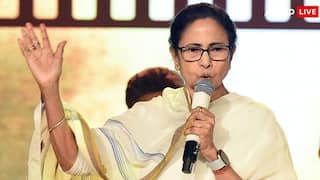Chirag Paswan's Party To Appeal Against SC Verdict On Dalit Sub-Groups, Says It ‘Won’t Uplift Socially Marginalised’
Union minister Chirag Paswan criticised the Supreme Court's verdict allowing sub-groups within SCs for quota allocation. He supports a caste census but opposes making the results public.

Union Minister Chirag Paswan opposed the verdict of the Supreme Court on Saturday which allowed states to create sub-groups within Scheduled Castes for a slice of the 15 per cent quota. He announced that his Lok Janshakti Party (Ram Vilas) will appeal against this verdict.
During a press conference, Paswan supported the idea of a caste census, for which a strong demand is being made by the Leader of the Opposition Rahul Gandhi. But, he expressed his view that results "must not be made public".
"Our party will go for an appeal requesting the apex court to review its recent judgement allowing sub-groups within 15 per SC quota," he said. "Creamy layer cannot be allowed in SC quota. Allowing sub-groups within SC quota will not serve the purpose of uplifting the socially marginalised segment that has been a victim of the practice of untouchability," he also said, PTI reported.
'Allowing Sub-Groups Within SC Is Not Justified:' Chirag Paswan
The Hajipur MP, whose late father Ram Vilas Paswan was a prominent Dalit leader of the country, noted with surprise that "the word untouchability does not even find a mention in the apex court judgment". "The majority of Scheduled Caste people, even those coming from well-to-do families and having access to education, face untouchability. Therefore, allowing sub-groups within SC is not justified," he added.
Paswan refrained from commenting on the stance of his alliance partner JD(U), which applauded the verdict as a "vindication" of Bihar CM Nitish Kumar's policies, including the creation of the "Mahadalit" category.
He was also questioned regarding the recent upheaval in Parliament caused by the demand for a caste census. "I think we should have a caste census. But findings of the same must not be made public. The data collated should be used by the government for framing policies," Paswan added, without elaborating further.





































